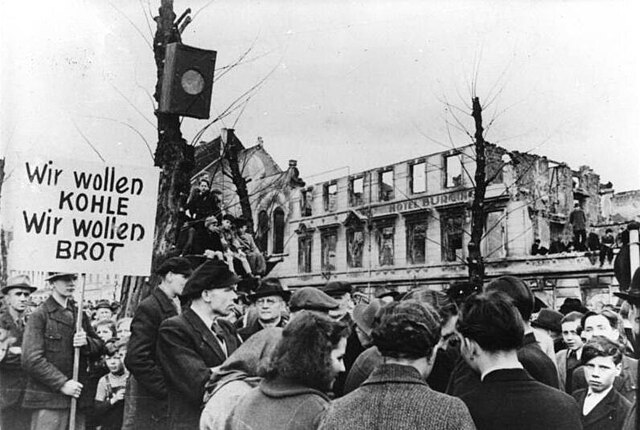Charles "Chip" Eustis Bohlen was an American diplomat, ambassador, and expert on the Soviet Union. He helped shape United States foreign policy during World War II and the Cold War and helped develop the Marshall Plan to rebuild Europe.
Bohlen (on right) in February, 1945
Bohlen on left consulting with Secretary of State James F. Byrnes and other advisors in preparation for the Potsdam Conference
Bohlen standing between Joseph Stalin and Harry Truman at the Potsdam Conference
Charles is interred in the Bohlen family plot at Laurel Hill Cemetery in Philadelphia.
The Marshall Plan was an American initiative enacted in 1948 to provide foreign aid to Western Europe. The United States transferred $13.3 billion in economic recovery programs to Western European economies after the end of World War II. Replacing an earlier proposal for a Morgenthau Plan, it operated for four years beginning on April 3, 1948, though in 1951, the Marshall Plan was largely replaced by the Mutual Security Act. The goals of the United States were to rebuild war-torn regions, remove trade barriers, modernize industry, improve European prosperity and prevent the spread of communism. The Marshall Plan proposed the reduction of interstate barriers and the economic integration of the European Continent while also encouraging an increase in productivity as well as the adoption of modern business procedures.
General George C. Marshall, the 50th U.S. Secretary of State
The hunger-winter of 1947, thousands protest in West Germany against the disastrous food situation (March 31, 1947). The sign says: We want coal, we want bread
First page of the Marshall Plan
US aid to Greece under the Marshall Plan








